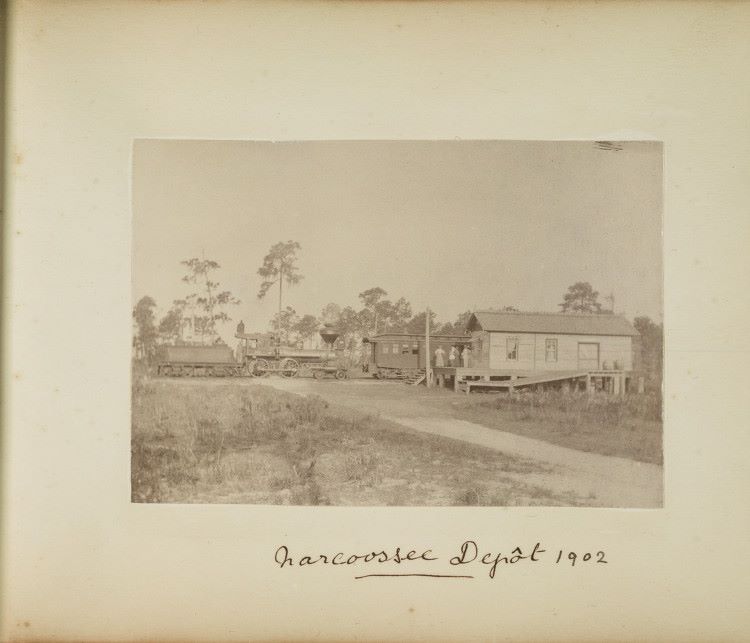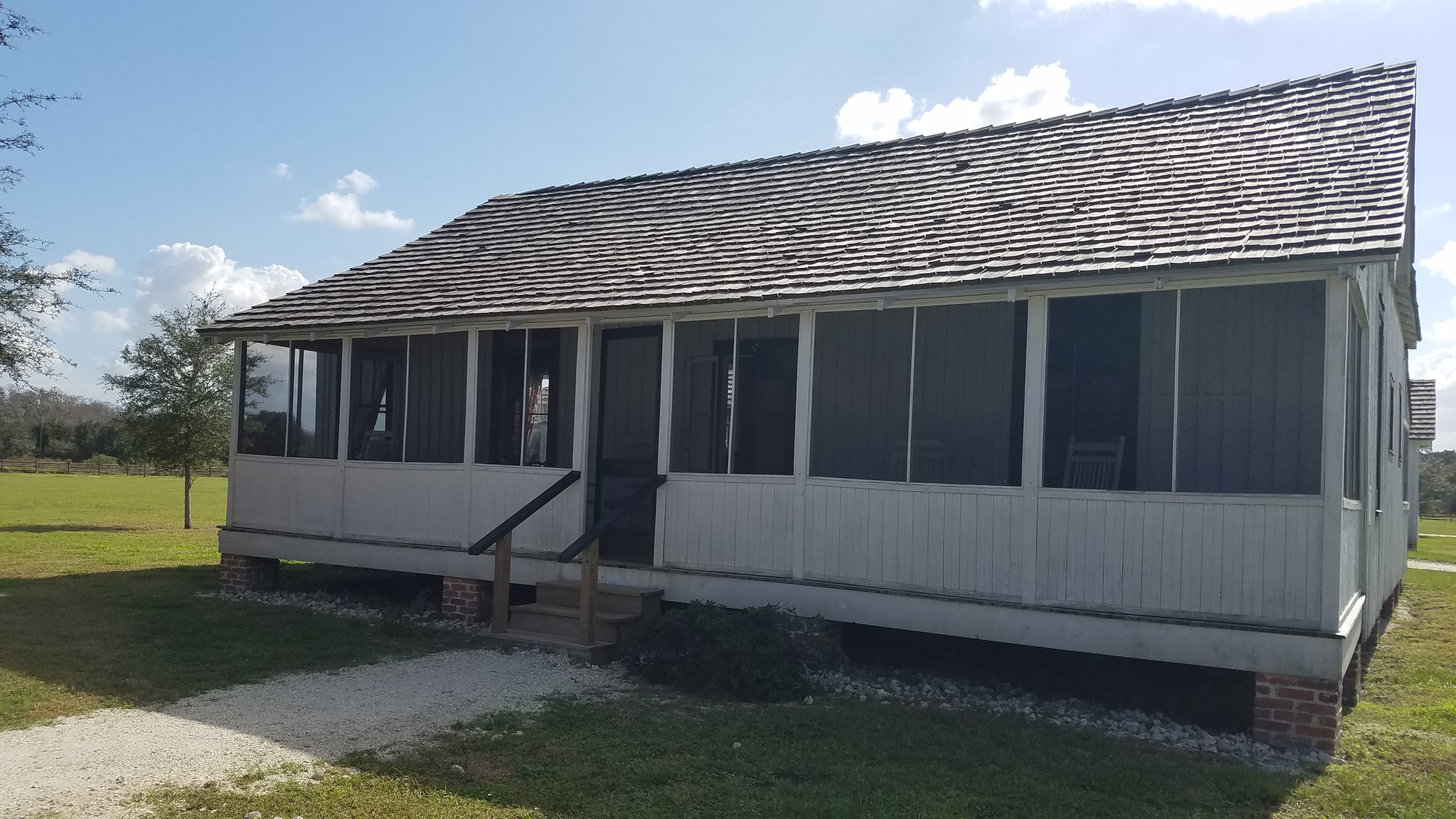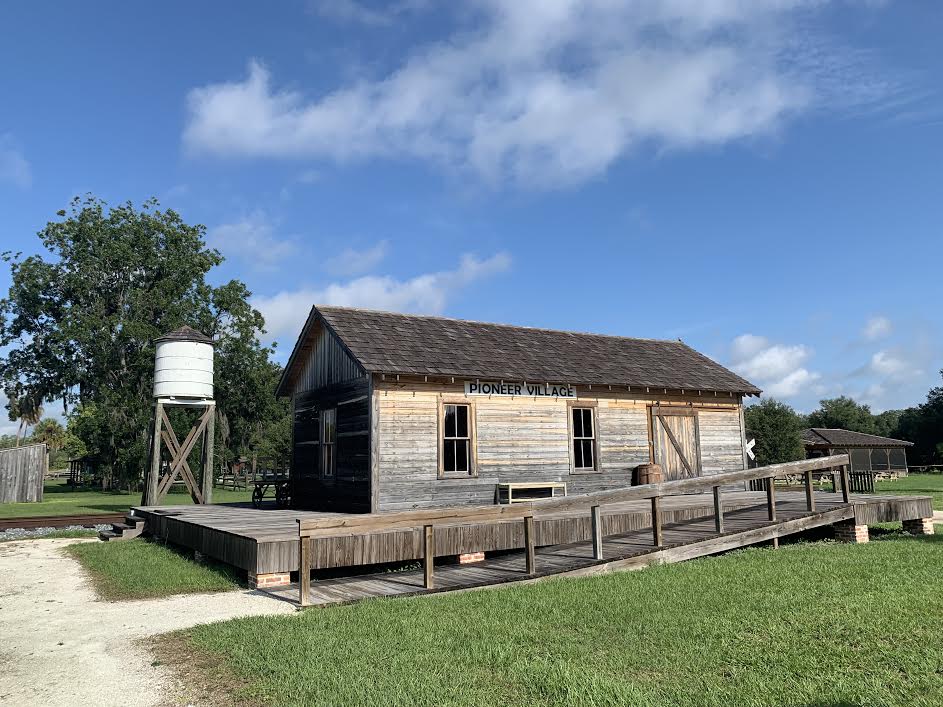Osceola History will celebrate the 131st anniversary of the first train arriving in the Narcoossee community with a special event at Pioneer Village on July 19, 2020, from 10 am. to 3 p.m. The Osceola History staff and volunteers will follow COVID-19 precautions to help ensure the safety of guests. So join in the fun, safely, as Osceola History celebrates the first train.

When the first train arrived in Narcoossee on July 19, 1889, “The Kissimmee Leader” reported visitors were royally entertained and it “was a big day – and one long to be remembered – to the enterprising citizens of Narcoossee. Arrangements had been made on a grand scale to celebrate their connection with the entire country, through the completion of the Sugar Belt Railway to that point.”
The Narcoossee Community
In 1883, Arthur Fell, a New Zealand-born Englishman and solicitor in London, purchased 12,640 acres in the raw Florida frontier with the intent to establish an English colony. Arthur appointed his brother, Nelson Fell, as his agent. Nelson formed a partnership with his friend, Walter Bruce Murdock Davidson, and purchased 2,000 acres on East Lake Tohopekaliga. The land was surveyed, platted and named Narcoossee in September 1884. Fell & Davidson promoted and sold the small farms for citrus and other crops to prospective British settlers and other buyers.

In 1888, Col. William Cadman and his family moved from England to Florida and bought an interest with Fell & Davidson. According to a report in “The Kissimmee Leader,” Col. Cadman “went to work with all his might and main for the building up of the place, but realizing that their efforts would not count at their true value without the aid of railroad communication, they, on the completion of the Sugar Belt to Runnymede, proposed to grade and tie the road to Narcoossee if the company would lay the rails and operate it.” The new rail line to Narcoossee was completed by the summer of 1889.
On July 19, the Sugar Belt train left the Sanford station a little afternoon with a train car full of people, including Orlando Cornet band. The train arrived at the Narcoossee station at 1:05 p.m. It was reported more than 500 joined in the celebration which included dinner and a “diversity of amusements” such as dancing, horse-racing, foot races, tug-of-war, and speechmaking. Col. Cadman served as master of ceremonies.
A writer from the “South Florida Sentinel” reported: “The barbecue was the finest the writer has ever seen, there being an abundance of almost everything one could wish from the best barbecue beef, mutton and pig, to the most delicious ice cream.”
The event concluded with the singing of “America” and “God Save the Queen.”
According to the newspaper report, “At 6:15 the train started for Kissimmee bearing about as well satisfied and pleased a crowd of excursionists as ever returned from a successful barbecue, and all loud in their praises for Narcoossee and wishes for her future and welfare and prosperity.”

Train Day at Pioneer Village
The train depot at Pioneer Village at Shingle Creek is a replica of the Narcoossee station. The village also features the original Cadman family home and a citrus packing plant owned by the Cadmans.
Train Day festivities will begin on July 19 at 10:30 a.m. with live music throughout the day by Rick Yancy. Monica Leibacher will present spinning demonstrations at the Tyson House.
Guided tours of Pioneer Village will be available at 10:30 a.m., 12:30 p.m., and 2 p.m.
And in keeping with the tradition of ice cream being served at the Train Day celebration, guests will be treated to free ice cream and can watch homemade ice cream being churned at 11:30 a.m. and 1:30 p.m. July 19 is also National Ice Cream Day.
Admission is $8 for adults and includes admission for 2 children (under age 12) with each paid adult admission. Admission for additional children is $4 per child. Pioneer Village is located at 2491 Babb Road in Kissimmee, Florida, and is open daily from 10 a.m. to 4 p.m. For more information, visit www.osceolahistory.org. Come and join in the fun, safely, as Osceola History celebrates the first train.